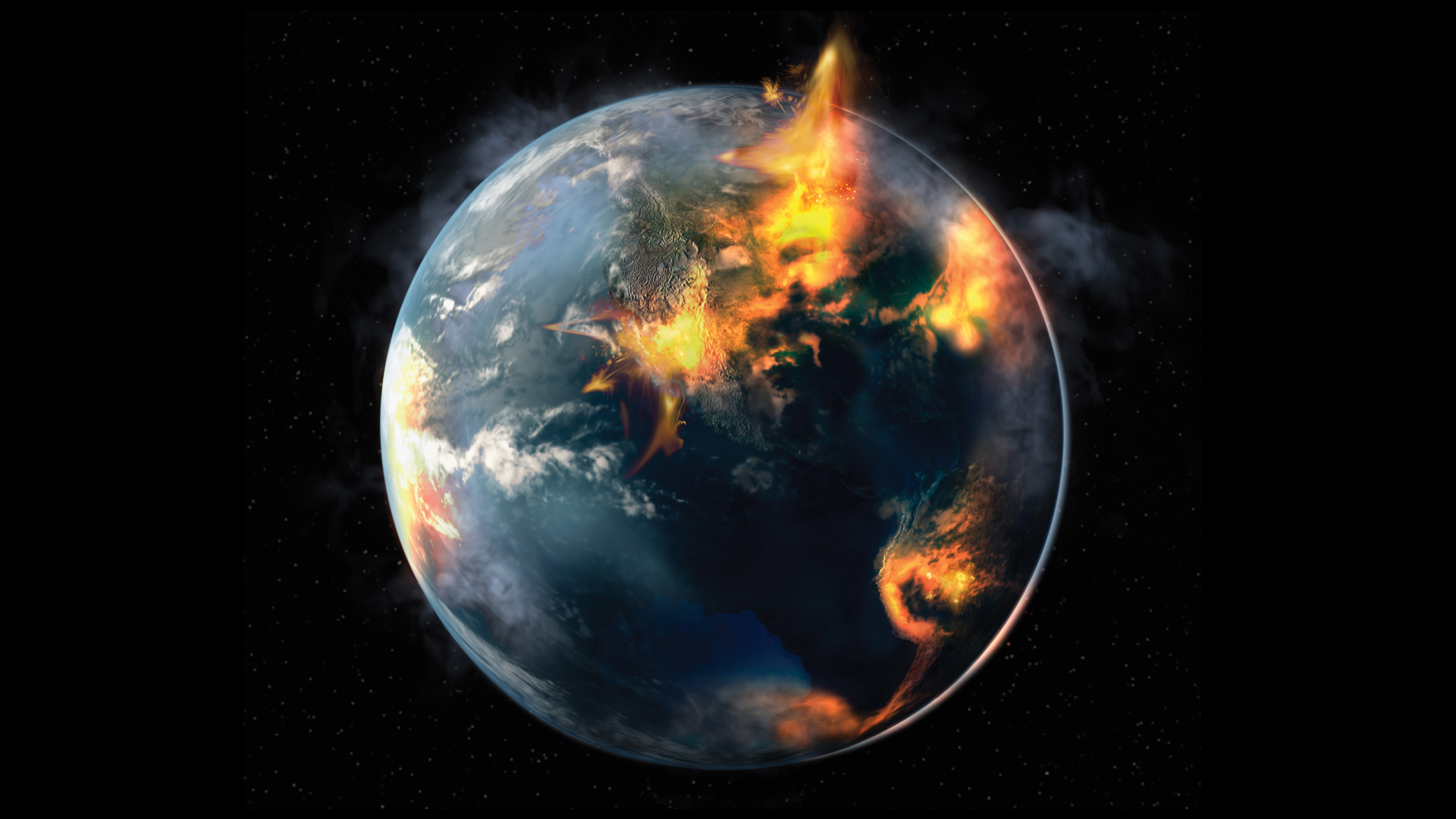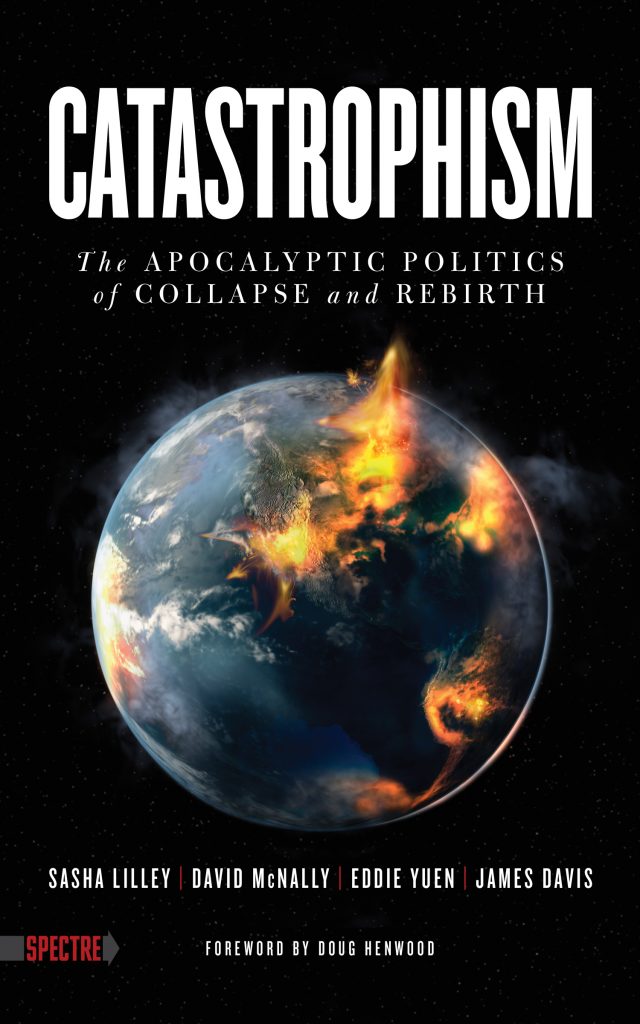by Seth Sandronsky
The Progressive Populist
January 2012
The politics and rhetoric of doomsday shadow the left, right and environmental movement in the Global North. What this trend assumes and explains is the focus of a new book titled Catastrophism: The Apocalyptic Politics of Collapse and Rebirth [PM Press].
Catastrophism is the view that society is on the path to collapse, ecologically, economically and morally. For some but not all catastrophists, a collapse will spur a rebirth and cleansing.
The book’s authors agree that capitalism does generate catastrophes. The most visible one is climate change; others are less easy to see, with species die-off a dire case in point.
Meanwhile, the political and rhetorical use of fear unites leftists, rightists and environmentalist. This may seem strange.
Yet strangeness apart, the rub is that for the right-wing, secular and sacred, fear works splendidly to galvanize support for ruling-class power that maintains its hegemony in large measure by splitting the working class by ethnicity, gender and race. By contrast, fearful politics and rhetoric tend to paralyze the left and environmental movement, a critique at the heart of Catastrophism.
Doug Henwood,
author and financial journalist, in a foreword sets the
anti-catastrophe table for the four chapters to follow. To this end, he
maintains that dystopian narratives weaken progressives and are rooted
in mistaken views of reforming and overturning the system.
Eddie Yuen
explores the uses of catastrophe in the environmental movement. He
surveys how in part catastrophes are normalized, contextualized,
attributed and prophesized, from former Vice President Al Gore to the
Rev. Thomas Robert Malthus.
Yuen suggests that presenting the public with fearful facts about the climate crisis, for instance, is insufficient to encourage them to engage in social solidarity. For him, self-organized movements are the key node of resistance to environmental devastation, everyday people coming together to combat their isolation in the face of corporate capitalism’s relentless attacks against them and the planet.
Sasha Lilley critically unpacks left-wing views
of collapse as a means to awaken and cleanse society. Why?
Catastrophists on the left are, she argues convincingly, are mired in “a
deep-seated pessimism about mass collective action and radical social
transformation.”
Against the backdrop of such defeatism over recent
decades, Lilley defines one flavor of left catastrophism as that of
determinism: the capitalist system’s limits alone will herald
progressive social change. She evaluates the evidence of this from
currents in anarchism and Marxism, past and present.
For Lilley, some Marxists misunderstand Marx’s view of history, seeing it as a mechanical unfolding of social change. Yet he placed at the center of this process the actions of living human beings collectively cooperating to end their oppression, with the overthrow of apartheid in South Africa a modern example.
For Lilley, there is also a voluntarism viewpoint of left catastrophists: grim material conditions alone (“the worse the better”) will spur radical possibilities. She takes up one variant of this outlook in part with an analysis of far-left groupings such as the Weather Underground during the 1960s.
James Davis explains how the US right views part or most all of the 20th century as a series of catastrophic defeats for apple pie and motherhood. We see such wound-licking in the apparent GOP re-set after decisive defeats in the 2012 general election, propelled in part by an emerging minority-majority electorate opposed to the agenda of the Republican Party.
David McNally wraps up the book with a brilliant chapter on the history and imagery of monsters under capitalism, especially zombies. His is a cultural and historical critique, and quite readable.
We journey from the England of Mary Shelly’s Frankenstein to France’s colony of slave-laborers in Haiti and Pennsylvania during de-industrialization. McNally pulls the curtain back on what does (not) happen to working people on and off the job every day, the routine “dead-time” of labor services for pay, a catastrophe that finds cultural expression in monster tropes.
Underpinning the book is the authors’ sense of urgency. Theirs is the view that an informed understanding of the actual character of the capitalist system can empower dissidents mobilizing together to build an anti-system movement.
Catastrophism launches a vital conversation for our crisis-laden era. In a time of real dangers and unreal cures, this is a book to read and savor with family and friends.
Seth Sandronsky lives and writes in Sacramento. Email [email protected].
Back to Sasha Lilley’s Author Page | Back to David McNally’s Author Page | Back to Eddie Yuen’s Author Page | Back to James Davis’s Author Page







